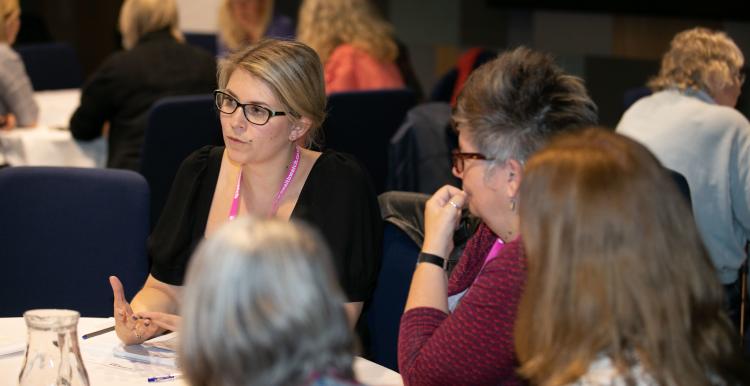Health and Care Experience Profiles: Understanding how services work together

NHS England published the NHS Long Term Plan in January 2019 and asked us to find out from people across the country about how they thought the priorities set out in the plan should be implemented in their area.
People told us that services weren’t working well together and that supported needed to be faster, particularly for those with multiple long-term conditions.
Following our work and as part their delivery of the Long Term Plan, NHS England committed to developing an ‘Integration Index’ to assess how well services are working together.
The Integration Index has two parts:
- The National Index involves surveying people in every area of the country on their experience of services working together. NHS England has developed questions for this survey in partnership with the Picker Institute.
- A local element that includes several research methods local systems can use to gather people’s views and track how integration is working locally. NHS England has worked with the King’s Fund to develop an overview of methods for the local index and Healthwatch to develop a new qualitative methodology for understanding people's needs in depth.
The work so far
The more comprehensive Integration Index work will form part of the developing accountability and performance frameworks for Integrated Care Systems (ICS). Using various quantitative tools, ICS can track how integrated care is delivered against Long Term Plan commitments.
However, to understand whether integration improves people’s experiences in different communities and what needs to be done to help services keep getting better, a more qualitative research approach is required.
We have published a methodology for the local integration index that ensures people’s experiences inform how services work together by reviewing existing policies and data while measuring how patients, service users and carers think local services provide joined-up and personalised care. This methodology will sit alongside other quantitative tools for use by ICS.
Local Healthwatch have run pilots in Cambridgeshire, Cheshire East, Cheshire West, Ealing, Hounslow, Manchester, Peterborough and West Sussex. The local Healthwatch developed and tested the methodology by looking at the experiences of five groups of people with particular Health and Care Experience Profiles.
The profiles piloted so far are:
- Children and young people with mental health support needs who are becoming adults.
- People with diabetes who are of South Asian origin.
- People with learning disabilities and their unpaid/family carer, with a recent experience of hospital discharge.
- Black men with a number of health needs including a recent experience of cancer.
- Women with a number of health needs including a recent experience of a heart condition.
How does it work?
People receiving care across several services should feel like they are being supported by one big organisation, thinking about all their needs and providing a coordinated response NHS services must work well with local social care services, as well as other public services that provide housing, transport, benefits and education to do this.
Any approach measuring experience across these systems must be flexible enough to reflect variations between different ICS in specific demographic, geographic and economic factors.
Local Healthwatch are ideal for considering these factors and applying this methodology to evaluate local systems.
Developing Health and Care Experience Profiles
Once a core population group has been identified by local leadership to highlight local experiences, Health and Care Experience Profiles can be developed and tested in three stages:
- Review existing national and local policies and strategies
Looking at relevant existing documents designed to support integrated care for specific groups of people or people with particular conditions can help you understand what system leaders think user experience should be according to their current plans and processes. - Assess existing national and local user experience data
Using people’s experiences of integration and broader user experience data gathered from target group of people you are focusing on. - Conduct research through 1-2-1 interviews or focus groups
Up-to-date insights can identify whether existing user experiences/feedback systems were asking the right questions and getting a proper understanding of how people really feel about integrated care.
What next?
This work is a great example of how local Healthwatch can work as a delivery partner to help inform how services could be improved in their area. This methodology provides an opportunity for Healthwatch to be commissioned to help carry out this work and find out how any groups of people might be experiencing care across different services through working with the NHS and its partners.
Any findings that you gather from using this methodology can be used to support service change.
Find out more
Find out more how to develop Health and Care Experience Profiles and the pilots so far in the methodology. If you would like more information about this work, please contact paul.callaghan@healthwatch.co.uk.
